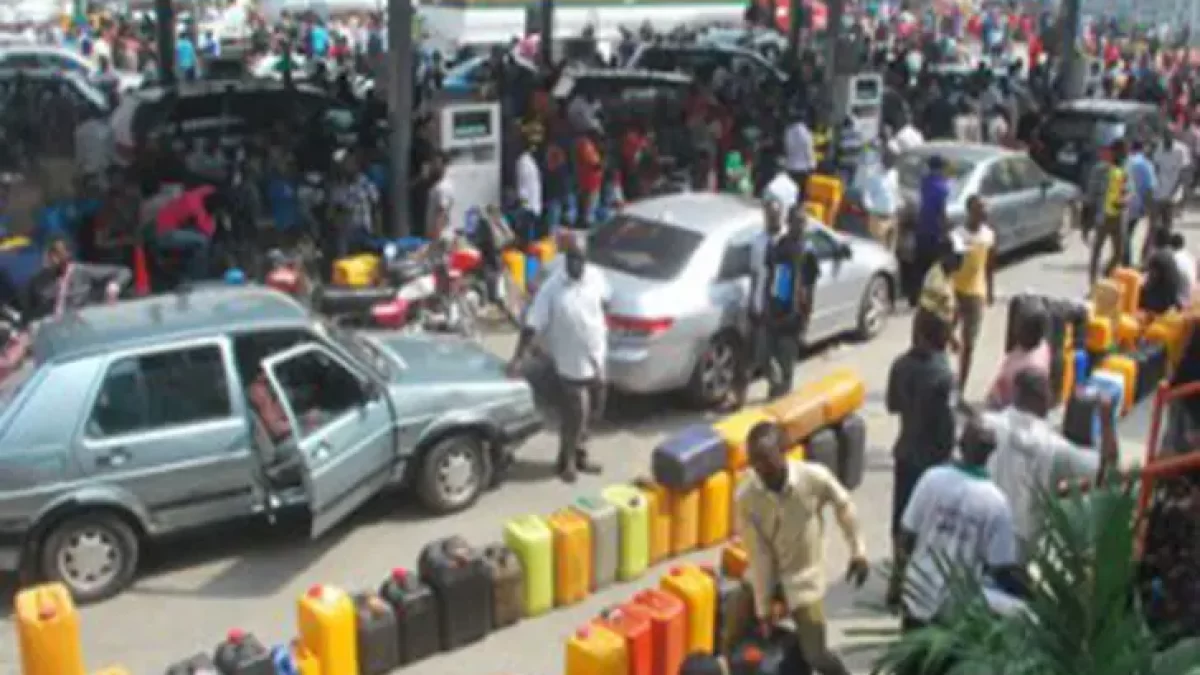President Bola Ahmed Tinubu’s government appears to have taken off on a chaotic start with oil marketers shutting their gates to motorists in reaction to his Monday’s inaugural address, where he announced that the subsidy scheme being paid for petrol is gone.
Africa Today News, New York gathered from many sources that many filling stations in Abuja and its environs had long queues snaking several meters as motorists scrambled to stockpile petrol as experts noted that petrol may go as high as N700/litre in a deregulated environment.
According to these sources, dubious oil marketers were now in full throttle to take advantage of the Tinubu’s pronouncement to create artificial scarcity, which will force motorists to buy petrol at cutthroat prices.
From Kubwa to Wuse, CBD to Garki, fuel queues literally choked the Federal Capital Territory (FCT).
As always, black marketers capitalised on the scarcity to fleece motorists who are not able to queue for petrol in filling stations.
Within the FCT metropolis, a litre of a compressed 10-litre of petrol sold for ₦8,000, which translates to ₦800/litre.
Read Also: Atiku Tenders 118 Exhibits In Case Against Tinubu
Experts who analysed Tinubu’s inaugural address described the subsidy abolition part as insensitive and reckless since former President Muhammadu Buhari’s administration had budgeted N3.6 trillion for subsidy payment between January and June this year.
They also said that solid intervention programmes that will ameliorate the anticipated post-subsidy hardship have not been designed and administered to warrant the sudden removal.
Meanwhile, the Nigerian National Petroleum Company Limited (NNPCL) and the Nigerian Midstream and Downstream Petroleum Regulatory Authority (NMDPRA) have backed Tinubu’s move to immediately end fuel subsidy.
The Group Chief Executive Officer of NNPCL, Mr Mele Kyari, at an emergency press conference at the NNPC Towers on Monday night, told Nigerians that the move was in the best interest of the country.
Kyari said subsidy payouts have continued to gulp a substantial amount of its profits, leaving it with leaner resources to operate.
He, however, said there was no need for panic buying as fuel queues had been noticed in some areas of the FCT.
He noted that the company had enough product to supply the country for the next 30 days, adding that it was monitoring its supply and distribution networks around the country.
